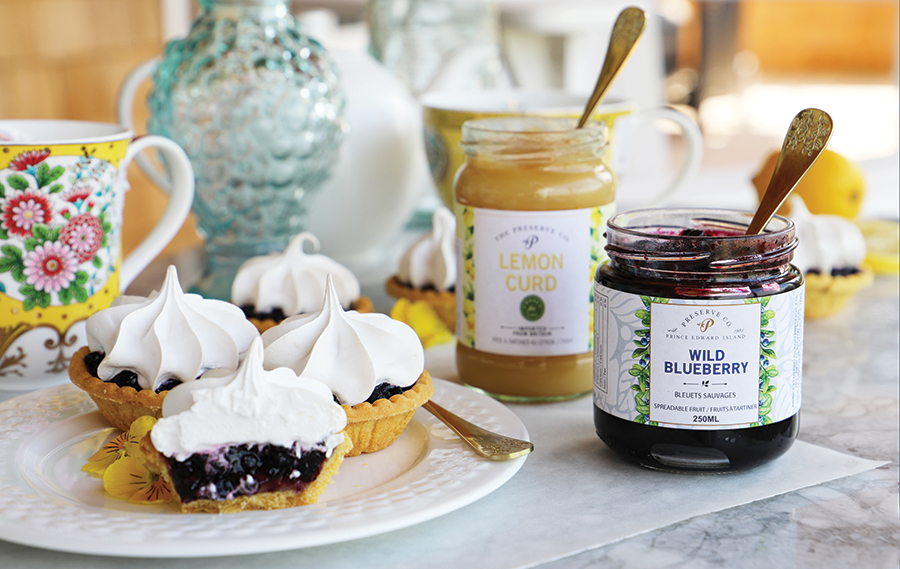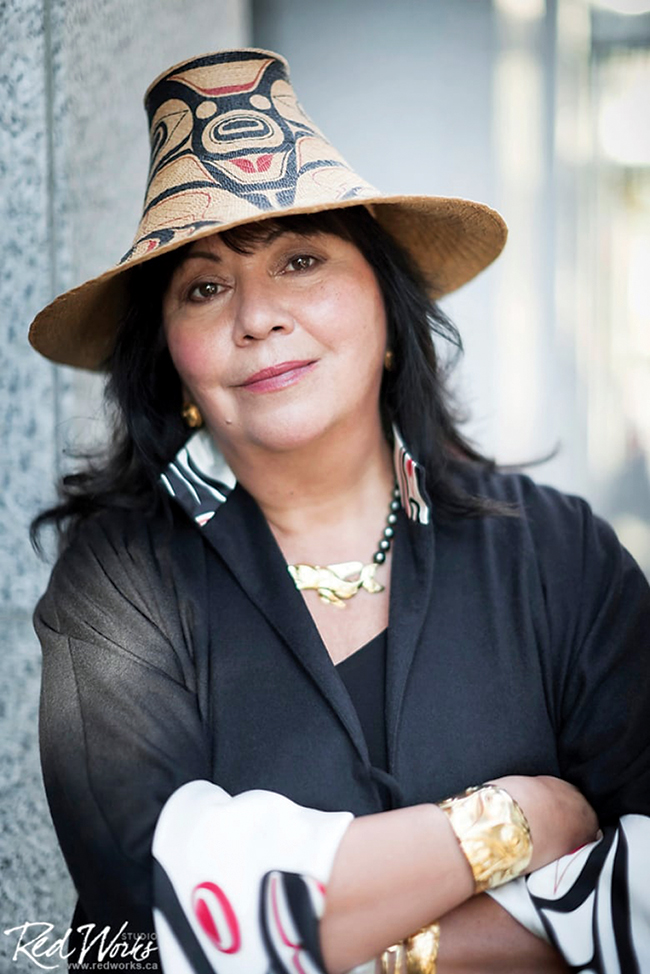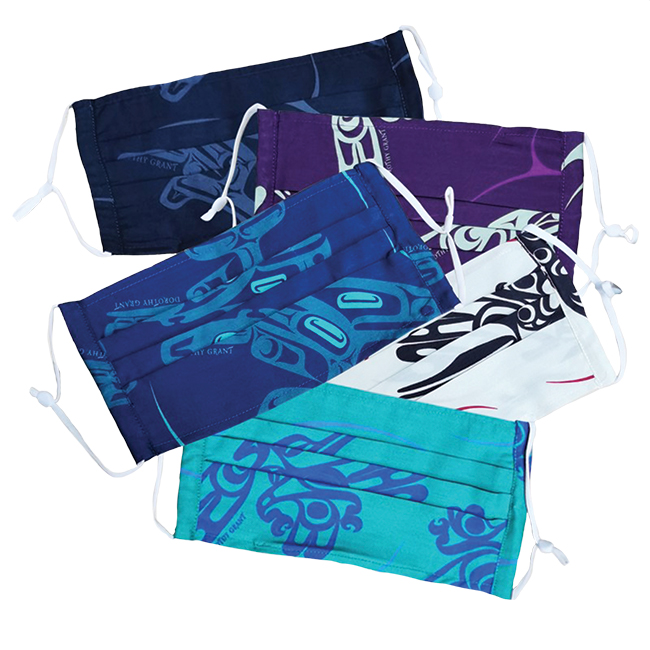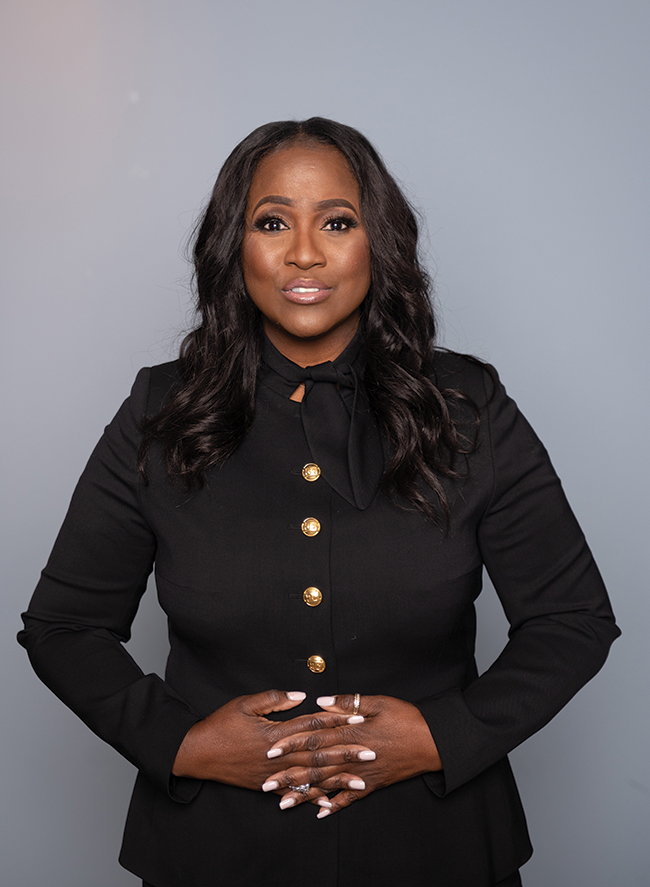Risky Business: How Mature Entrepreneurs Are Adapting to the Global Pandemic

Marketing executive Nadine Spencer — pictured above at the intersection of King and Bay streets in the heart of Toronto’s financial district — became a lifeline for businesses navigating their new online workplace during the pandemic, offering a multimedia training studio designed to help ease the transition. Photo: Natural Image Photography
The economic impact of COVID-19, with its social-distancing requirements, limit on in-store customers and heightened health protocols, has been a knockout punch for many entrepreneurs running small enterprises.
“Businesses that have been around for decades, even generations, are in danger,” says Laura Jones, vice-president of the Canadian Federation of Independent Business (CFIB), a non-profit that represents 110,000 members.
“Small business doesn’t exist to decorate our communities,” warns Jones. “Yes, they make our communities lovely but they need to make sales to survive.”
The Ontario government controversially allowed chains like Walmart and Costco to stay open in locked-down regions because they sell food and medicine even as they shuttered smaller shops just before the busy holiday season. Manitoba restricted big-box stores to selling essential items only. Independent operators were floundering, with CFIB reporting in December 2020 that only 30 per cent of its members were back to pre-pandemic revenues.
With Statistics Canada reporting that, in 2019, 1.2 million small businesses with fewer than 100 workers employed 8.4 million people – almost 70 per cent of the workforce – countless livelihoods are on the line.
“They are big in terms of jobs but also revenue,” Jones points out. “They pay taxes to city hall.”
A StatsCan survey of small businesses in September and October 2020 showed almost a quarter of those who employed one to four workers reported revenue drops in excess of 40 per cent compared to 2019.
StatsCan’s experimental estimates for all business closings and openings show that, on average, 39,000 businesses closed each month since January 2015 but, in April 2020, that number more than doubled to 88,200. By September, the latest month of data, it was back to 33,000.
And a June 2019 Ipsos poll of 2,007 Canadians for the Royal Bank of Canada showed that among small business owners, 42 per cent were baby boomers aged 55 and up, 34 per cent were 34 to 54, and 24 per cent were millennials. The boomers were motivated to launch businesses because the kids had left the nest (41 per cent) or to supplement their retirement income (49 per cent).
The majority of these entrepreneurs provide something no big-box store can – the personal touch.
“The one thing about small businesses: they know your name. They are there at street level, greeting you,” Jones says.
As the pandemic spread, many quickly shifted online, offering delivery or curbside pickup, while some, like yoga studios, moved classes onto platforms like Zoom. It takes bravery, resiliency and an enterprising ethos to switch gears in the middle of a global pandemic, as cash and credit dwindle and bills mount.
“They have their face to the wind. They are willing to take risks,” Jones explains. “That is the entrepreneurial spirit.”
Here are three stories of indomitable older Canadian entrepreneurs whose experience and resourcefulness is helping them weather the storm.
In a Jam
In the tiny hamlet of New Glasgow on the north shore of Prince Edward Island, Bruce and Shirley MacNaughton make darling jams and jellies in a converted butter creamery, sell their wares in the gift shop and serve hungry tourists Potato Pie and Seafood Bubbly Bake at their restaurant.
In summer, butterflies and blooming flowers adorn the property overlooking the River Clyde, which they picked for its resident flock of Canada geese. It’s all so twee and charming, but the brutal reality is the 35-year-old business is fighting for its life – and the livelihoods of dozens of residents – in this tourist town a 15-minute drive from Cavendish Beach.

Bruce, 64, and Shirley, 68, built the Prince Edward Island Preserve Co. on Bruce’s recipes and bought the derelict creamery in 1987. When cruise ships disgorge tourists, they flock to the restaurant and the store, where tartan throws and orange marmalade vie with miniature teapots and hand soaps for their attention.
Bruce’s canny marketing skills helped grow the company, which included sunrise visits to Charlottetown’s hotels to ply tour operators with jars of preserves and an invitation to drop by the store. He stood on the highway in a kilt, waving to buses and cars. “Where’s the parade? Where’s your bagpipe?” they’d ask, intrigued enough to stop.

The seasonal restaurant serves happy visitors to the island, home of Anne of Green Gables and the birthplace of Confederation.
The MacNaughtons have been buffeted by past economic storms, but COVID-19 is exacting the most damage yet. It’s been a double whammy: the Canada-U.S. border closure kept the Americans out and the Atlantic bubble prevented the rest of Canada from coming in.
“With the news of the U.S. border shutting, we knew cruise ships and motor coach travel would cease,” Bruce says. They welcomed visitors from within the Atlantic bubble of Nova Scotia, New Brunswick, Newfoundland and Labrador and P.E.I., but business fell 80 per cent and the workforce shrank to
44 from 87 in a hamlet with about 200 residents.
“We are a very tight-knit group of people working together and taking pride in producing and purveying quality products,” says Bruce. “A sense of family has been created. We love to laugh at work, and having some of the characters not here is hard.”

Scrambling for a lifeline, Bruce brought three new sugar-free preserves to market and will add more this year.
“We have always pushed the envelope on how little sugar we needed to use in our regular line. Shirley and I wanted to create a line of preserves with no preservatives or added sugar.”
The full range of gift shop items are offered online, and he has seen sales jump 300 per cent. “Can it ever replace lost tourism? It is hard to know the answer at the moment,” Bruce says, “but we may well have to plan on growing this side of the business.”
A cheerful entrepreneur with an uplifting blog, Bruce’s mantra is to keep on going. The parents of two adult daughters, the MacNaughtons certainly aren’t talking about retirement.
“Let’s say our middle name is perseverance. We weathered the storms because of the love and support we have from our customers, suppliers, staff and our community. As with any problem, the best thing to do is face it, wrestle with it and slay it.”
The word preserve doesn’t just mean tasty condiments, Mac-Naughton points out: it also means to save.
Mask Master
Haida fashion designer Dorothy Grant arrived in Santa Fe, N.M., on March 6, just before COVID-19 closed the Canada-U.S. border. Overnight, a fellowship at the School for Advanced Research was upended. Instead of celebrating her 65th birthday and writing her memoirs after more than three decades as a leader in Canada’s fashion industry, she picked up the phone, called her seamstress in British Columbia and ordered her to gather all the fabrics and scraps in the studio and “make as many masks as you can.”
This was two months before Dr. Theresa Tam, Canada’s chief public health officer, recommended wearing masks for the first time. The fashionable face coverings, made with Grant’s own designs, were a sensation.

Grant knows how to adjust. She has done it many times and reports she’s as successful in 2020 as she ever was.
“You feel like the world has shifted. I think entrepreneurs are survivalists. We are willing to take risks in everything we do,” says the Order of Canada recipient, who gave all her profits from those first masks to a battered women’s organization.

In Santa Fe, the mentor was sought by panicking artists, whom she advised to forge ahead.
“You’ve got to paddle hard. I’m used to that. I wrote a piece – directed to artists – with the practical steps to get yourself ready. The world around us was changing.”
Her advice, titled “Never Before in My Lifetime” and posted on her website in early April, went viral with tips on how to move a business online, sell inventory at “a deal,” rethink product lines to provide goods and services required in the new economy and ask friends and family to support your work.
“It was almost exciting to know I could swim out of this,” says Grant, who has weathered four recessions in 40 years.

The designer moved online years ago, even before she shuttered her bricks-and-mortar store in downtown Vancouver in 2011. After 17 years of paying the country’s most expensive rents, she decided, “I’m never going to look back. I’m not returning to retail jail. I could see where the future was – online. I continued to work for my clients who came to me.”
The digital world didn’t daunt her. “I was not afraid. I had the tools within me. The fear factor – I get over that quick.”
She reasoned that the COVID-19 economy, with its attendant layoffs and downsizings, would translate into an appetite for cheaper goods, so Grant focused on masks, leather goods and scarves rather than high-end couture. She easily switched to smaller items like a small leather pouch just big enough for car keys, a cell phone and a credit card.
“When running an errand, you don’t need to take very much,” she says of her $98 DG mobile bag.

She kept up with her Twitter, Facebook and Instagram accounts, saying she’s not ashamed to boast about her work.
“Nobody’s going to brag about you if you don’t do it yourself.”
Grant trademarked her logo of two linked hands with human faces in their palms, which is stamped on all her products and symbolizes the connection between heart, hands and brain. Her designs use the traditional Haida colours of black, red and blue-green, as well as many significant Haida symbols, such as the raven.

Her work is in museums throughout the world including the Canadian Museum of History in Ottawa and the Natural History Museum in New York.
“I’ve been living my life as an artist for nearly 40 years and there wasn’t a day when I didn’t have a challenge,” she says. For example, she’s currently making felt hats. “After 30 years, I’m a milliner again,” she laughs.
The memoir will have to wait until she has time to add another chapter.
Image Works
Anticipating the pandemic’s disruptive power, marketing executive Nadine Spencer sprang into action last March.
The founder and president of BrandEQ Group Inc. and its diversity and inclusion brand, BrandEQBlack, expanded and redecorated her Toronto office just as the city moved into its first lockdown, providing a beautiful backdrop for the Zoom calls that dominate her day.

Early on, she realized the internet would become a lifeline for businesses, so she built a multimedia training studio staffed with technicians so she could coach clients on how to do business remotely.
One of the new job skills required by the pandemic economy, for example, is how to look natural in front of a webcam and use backdrops, lighting and angles “so people aren’t looking up your nose.”
While many businesses had an online presence, they needed to learn the nitty-gritty about digital marketing, such as how Google searches function and which keywords draw eyes to websites, she says.
BrandEQ, which also has offices in New York and Jamaica, where Spencer was born, hired five more people for a core staff of 23. A variety of clients from the retail, hospitality and civic sectors come to her for social media, communications, marketing, public relations and branding.
During the pandemic, one business owner wanted to drop all marketing until the smoke had cleared, but Spencer argued the only way to survive was to fight back. “If you stop, you are going to be dead,” she told them.
Spencer buffed her personal brand with a new promotional portrait taken in the middle of an empty street in the city’s financial district with a Brinks truck in the background. She liked the vehicle’s association with money. An executive of a technology firm was so taken with the concept that he asked for a similar photo shoot.
A York University political science graduate, Spencer is also the president of the Black Business and Professional Association, a Toronto-based non-profit that offers educational and networking opportunities to Black entrepreneurs. (At the end of 2020, she helped launch a mentorship program for Black female entrepreneurs in partnership with Ryerson University.)
The national organization, with 2,200 members and 12,000 associates, did a quick survey of Toronto’s Little Jamaica neighbourhood last fall that revealed 40 per cent of stores and cafés had closed their doors. Black-owned businesses have been “hit harder than most” by the pandemic, says Spencer, citing lack of access to capital such as investments, loans and lines of credit. “We see that Black entrepreneurs did not have the same reserve as others, and with no revenues coming in their businesses are not able to continue.”
The rising awareness of discrimination brought to light by the Black Lives Matter movement prompted the growth of BrandEQBlack, the arm of Spencer’s company devoted to advising and training businesses on diversity issues.
Launched three years ago, it provides everything from sensitivity training to inclusion policies to business audits that break down the percentage of women and BIPOC people in offices and the boardroom. Companies concerned about racists images and messaging are are increasingly asking her for evaluations of their ad and marketing campaigns.
“As human beings, we want to be treated in an equitable way,” says Spencer.
Early on, she realized the internet would become a lifeline for businesses, so she built a multimedia training studio staffed with technicians so she could coach clients on how to do business remotely.
A version of this article appeared in the Feb/March 2021 issue with the headline “Risky Business,” p. 58.
RELATED:
How Two Accidental Entrepreneurs Created a New Swimsuit for the Mature Woman